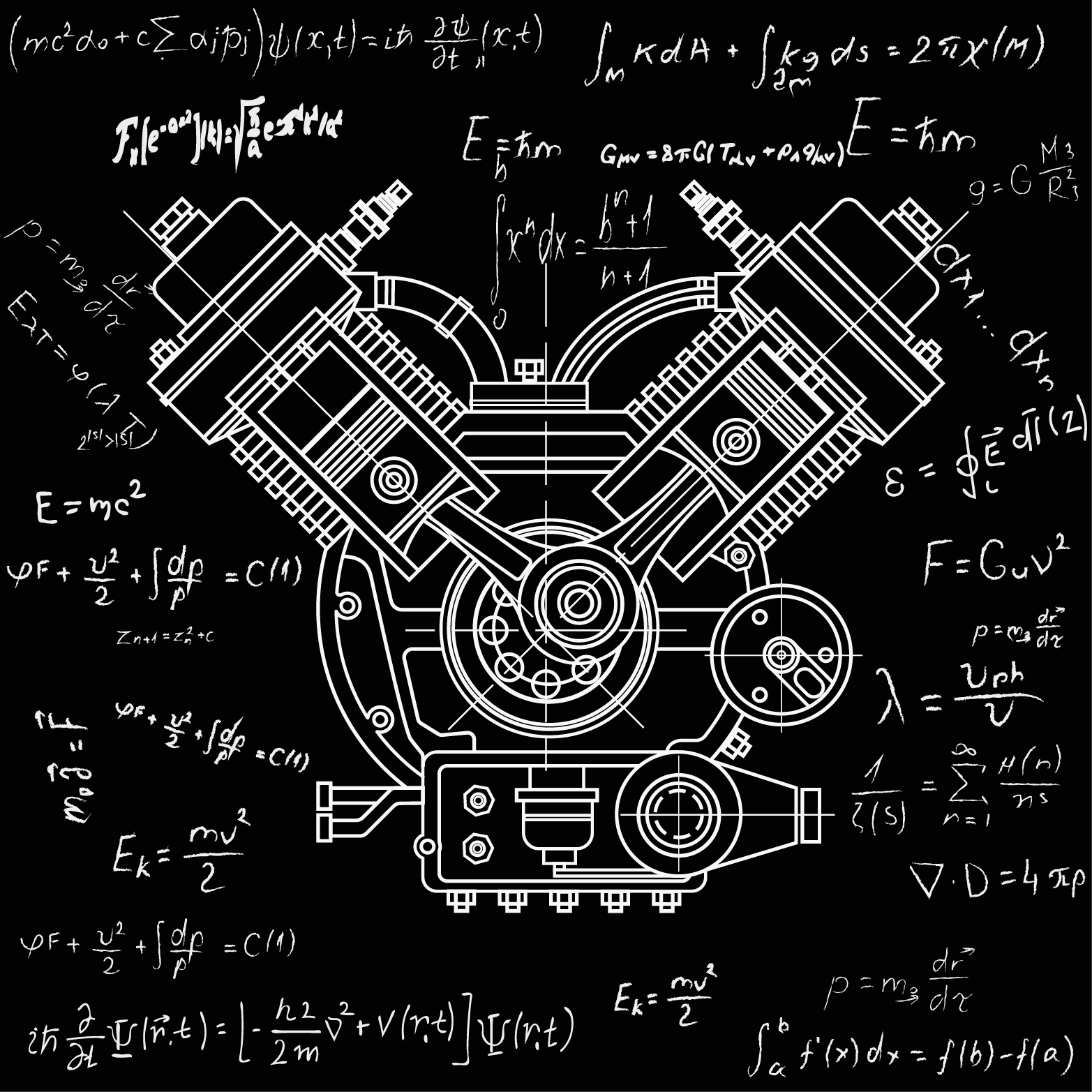Complicated and Complex Systems- Brief Introduction
Oct 5, 2023 by Georgi Nikolov | 2623 views
https://cylab.be/blog/291/complicated-and-complex-systems-brief-introduction
We often get confronted by a difficult problem - the lack of understanding of our environment, be that our community, organization or computer network. This originates from the structure of such systems, a finite amount of autonomous parts, which interact constantly with each other and produce unexpected results. Because of this inherent complexity, such systems are aptly named “Complex Systems”. There is still some confusion in differentiating Complex Systems from Complicated Systems and in this blog we will try to give a quick overview of each.
Comparing Apples to Oranges
Understanding what Complicated and Complex systems are is not a trivial task. Indeed, many make the mistake trying to treat a system, which exhibits all characteristics of a Complex System as though it is a Complicated one. Such an approach leads to many problems as the two can not be more different. A quick example to understand how we can differentiate them is comparing the how a computer functions to the internet.
By spending time researching different components, we can gain better understanding on which parts are needed and how they slot together to make a computer run. Each piece of hardware has a specific role- the hard disk stores data, the cables transport electricity, the motherboard functions as the backbone of the machine aiding the communication between the different components. If we apply the same methodology when looking at the internet, we quickly fall short to understand some of the elements of the system. Yes, computers, routers and humans are part of the system, but we also need to take into account the social aspect of communication between users, the vastly different types of data that is exchanged and how it interacts with each other, or even the geographical aspect which influences how internet is provided to remote places in the world.
Finally, we are confronted by the realization that Complicated Systems are systems we can understand by examining each of its parts and how they interact, contrary to Complex Systems where we need to take a step back and look at the system as a whole and try to understand it by examining the behavior and patterns it exhibits.
Complicated Systems
We are surrounded by different systems, each responsible for tasks to help us in our daily routine. We know how to use a fridge, drive a car or use a computer. But how many of us know exactly how any of those things are put together and how they function? Each of these systems is a collection of different parts, each with a specialized function, interconnected to serve a specific purpose.
This is what we call a Complicated system. As such, we can apply Reductionism philosophy and study the different underlying parts to understand the whole. This is a major aspect of Complicated systems- they are comprised of a finite number of simple elements, each of which interacts with the rest of the system in a clear and predictable way. For example, if we take the time and read up on it, we can understand using the schematics of an engine above, understand how the fuel circulates through the engine and affects the pistons to power it. There is a clear and direct cause and effect relationship between the different elements of the system, leading to a predictable interaction. If a problem arises, for example a part of the engine breaks, a skilled technician can use their knowledge of the system to single out the element causing this problem and correct it. This means that through in-depth specialized assessment of the System, a problem can be solved using specified rules which govern the System. Another aspect of a System governed by specific rules and procedures is that it is controllable and permanent solutions can be established for any problems which may arise.
What we can gather from this is that the defining features of a Complicated System are:
- comprised of many simple elements, which we can identify and understand their task in the System
- the elements constituting the system interact with each other in a predictable way
- a Complicated System can be understood by reducing the system to its ever-smaller components and assessing their tasks
- there is a direct correlation between cause and effect in a Complicated System
- by establishing rules and procedures, any problem which arises in a Complicated System can be corrected after specialized assessment
- a Complicated System is controllable and allows permanent solutions to problems
Complex Systems
As mentioned earlier, to better understand Complex Systems we need to take a step back and view the system as a whole. To do this, we need to use the Holism approach and understand that the system can exhibit behaviors and patterns not inherited by the different components. Here we talk about “emergent behavior”, patterns which are not regulated by the interactions between elements, but instead are created and adapt because of this interactions. The system in itself is considered dynamic and changes regularly to account for new patterns and new behaviors that might be adopted by the different elements. This means that we can not apply the same logic we use when dealing with Complicated Systems as there the elements interact in a strictly predictable way.
A “simple” example of a Complex System is road traffic, to make the parallel with the car engine we discussed when addressing Complicated System. We know the major components of traffic- cars, streets, traffic signalization (lights and signs), pedestrians and bikes. Each of this elements by itself is understandable, but when we bring them together, something almost organic is created and understanding or regulating it becomes a major issue. Further proof is the inability to completely solve congestion of freeways by adding extra lanes. It might seem counter-intuitive, we offer more space for cars but the adapted behavior and patterns lead to the same problems. This is governed by an aspect most people don’t think about- the psychology of the elements. Indeed, when we assemble an engine, we don’t need to take into account the changing mood or behavior of the elements, but when humans enter the picture the whole system changes. Further, we need to take into account things such as weather and its effect on the dynamic elements and the whole thing becomes exponentially more difficult to regulate.
To summarize, we can gather the following features of a Complex System:
- operates with a different logic than a Complicated System
- the continuous interaction between the different elements will lead to dynamic and adaptive behavior
- how elements interact and their relationships are more important than the elements themselves
- the emergent behavior will more often than not lead to unpredictable behavior
- it is very difficult to judge how a change will affect the system. It is possible that a big change brings small to no reaction, contrary to small changes which can propagate fast through the system and lead to huge reactions
- a Complex System can not be understood by following predefined rules and procedures governing the individual elements, a full system analysis is needed to evaluate and understand the behavior and relationships between elements
Implications [1]
To summarize the major differences between the two systems we need to review multiple topics, as discussed by Poli [2] and Blignaut [3]:
- Causality - one can not easily determine the root cause of a problem in a Complex Systems because of the emerging patterns and how they depend on the interactions of multiple elements. Contrary to that, the cause and effect relationships in Complicated Systems are linear.
- Linearity - There is a high degree of predictability in a Complicated System, where it is very difficult to predict the effect of an action and its result in a Complex System
- Reducibility - The elements in a Complicated System have one specific function and their relationships are understandable, contrary to Complex Systems where it is difficult to determine the function of the different elements as they often change behavior in unexpected ways based on their interactions
- Controllability and Solvability - Problems in Complicated System can be examined and their cause can be identified by following the rules and procedures. There is usually a permanent solution to such problems (for example replacing a faulty component). In a Complex Systems, problems are often due to emergent behavior and the interactions between elements, which leads to the need of constant supervision and management of the system to adapt to the new changes.
- System Constraints - It is easier to limit the functionality of a Complicated System by establishing predetermined constraints (closed system). Complex Systems are more difficult to separate from their context and the interaction with other systems, which means it is often impossible to separate them or close them off (open system).
- Knowability - To understand a Complicated System we can use the Reductionism approach and separate the system in multiple parts, further understanding its function. For Complex Systems we need to apply a Holism approach and review the system as a whole, gaining knowledge by interacting with it and observing its behavior.
- Adaptability - The Complicated System is limited in its functionality and will only do one (or more) specified tasks. If we need it to adapt to external changes, external intervention is needed. The capability to learn and adapt to external factors lets a Complex System change its behavior without external intervention, using its dynamic nature to continue functioning.
Final words
There has been much research in the field of Complex systems, most currently the difficulty of managing Cyber-physical systems [4] and the complexity they exhibit. Often our greatest pitfall is the need of strict regulations and easy fixes, but those are not applicable when we are dealing with a system which exhibits almost organic growth and adaptability to its environment and outside stimuli. The only way to advance our understanding is to design new techniques for analysis of Complex Systems, be that through the use of Machine Learning or Visual Analytics. As final words I leave you with a quote from a cherished Sci-Fi author Douglas Adams:
There is a theory which states that if ever anyone discovers exactly what the Universe is for and why it is here, it will instantly disappear and be replaced by something even more bizarre and inexplicable.
There is another theory which states that this has already happened.
~ Douglas Adams, The Restaurant at the End of the Universe
References
[1] https://alexdimiceli.medium.com/complex-or-complicated-41b2937ed01b#_ftnref5
[2] Poli, Roberto. “A note on the difference between complicated and complex social systems.” Cadmus (2013).
[3] Van der Merwe, Susara E., et al. “Making sense of complexity: using SenseMaker as a research tool.” Systems 7.2 (2019): 25.
[4] Baheti, Radhakisan, and Helen Gill. “Cyber-physical systems.” The impact of control technology 12.1 (2011): 161-166.
This blog post is licensed under
CC BY-SA 4.0




